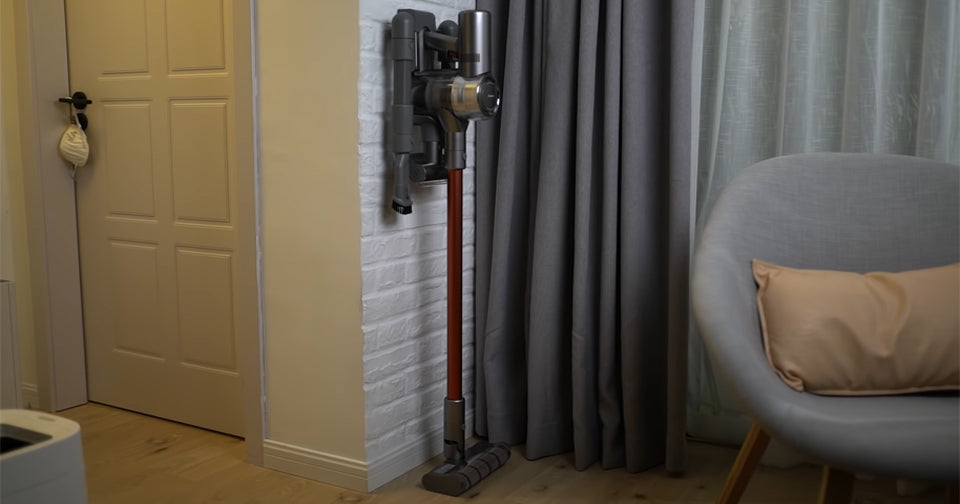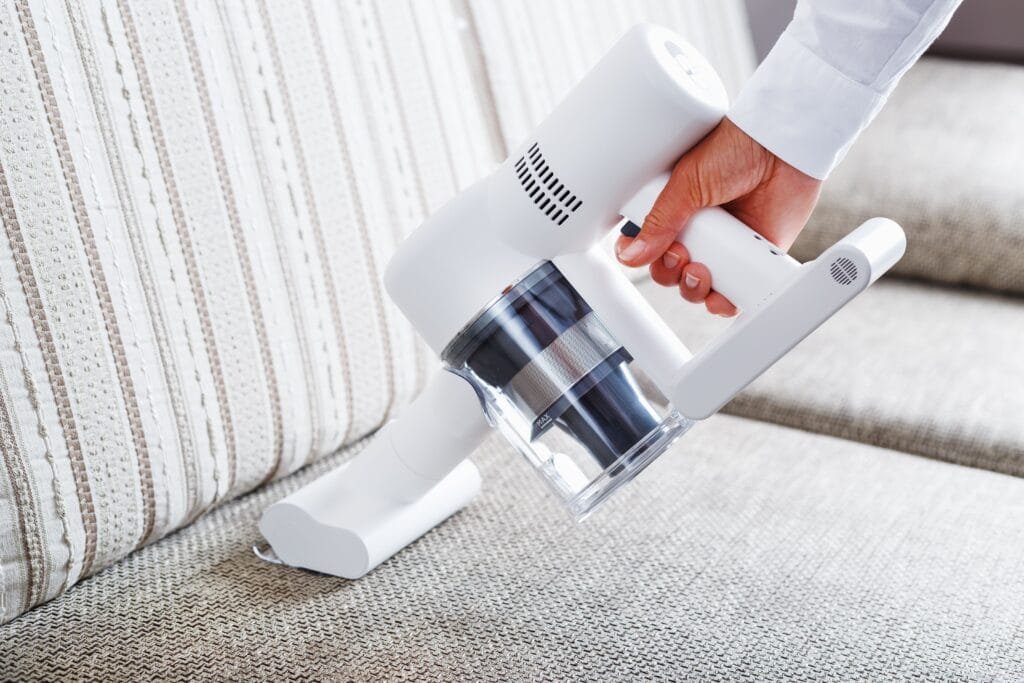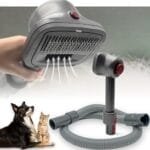A vacuum cleaner should last about 5 to 10 years. This depends on the brand, usage, and maintenance.
Vacuum cleaners are essential tools for keeping our homes clean. They save time and effort, making cleaning tasks easier. But like any appliance, they don’t last forever. Knowing the lifespan of your vacuum cleaner can help you plan for maintenance and replacement.
It also ensures you get the best performance out of your device. In this blog post, we will explore factors that affect the lifespan of vacuum cleaners. We will also share tips to extend their life. This information will help you make informed decisions about your cleaning tools. Let’s get started!

Credit: www.hooverdirect.co.uk
Vacuum Cleaner Lifespan
Have you ever wondered how long your vacuum cleaner should last? It’s a common question, especially if you’re considering a new purchase. Understanding the lifespan of a vacuum cleaner can help you make better buying decisions and ensure you get the best value for your money.
Average Life Expectancy
On average, a vacuum cleaner can last anywhere from 5 to 8 years. This range can vary depending on the brand and model. High-end models from reputable brands often last longer, while budget options might wear out faster.
For instance, my trusty Dyson has been cleaning my home for over seven years and still works like a charm. Meanwhile, a cheaper model I used before that barely lasted three years. So, investing in quality can pay off in the long run.
Factors Affecting Durability
Several factors can affect how long your vacuum cleaner will last. One major factor is how often you use it. If you’re vacuuming every day, expect more wear and tear compared to occasional use.
Another critical factor is maintenance. Regularly cleaning the filters and checking for blockages can significantly extend the life of your vacuum cleaner. Neglecting these simple tasks can lead to motor burnout or other mechanical failures.
Additionally, the type of flooring in your home can impact durability. Vacuuming plush carpets is generally harder on a machine than cleaning hardwood floors. If you have a mix of flooring types, consider a versatile model designed to handle various surfaces.
Lastly, storage matters too. Keeping your vacuum cleaner in a dry, cool place can prevent parts from rusting and reduce the risk of electrical issues. Treat your vacuum well, and it will return the favor with years of reliable service.
So, how long has your vacuum cleaner lasted? Have you noticed any signs that it might be time for a replacement? Share your experiences in the comments below!

Credit: global.dreametech.com
Types Of Vacuum Cleaners
When deciding how long a vacuum cleaner should last, it’s important to consider the different types available. Each type has its own unique features and lifespan. Understanding these can help you make an informed decision when choosing your next vacuum cleaner.
Upright Models
Upright vacuum cleaners are the classic choice for many households. They are great for cleaning large carpeted areas. Most upright models come with various attachments, making them versatile for different cleaning tasks. On average, an upright vacuum can last around 8 years with proper maintenance.
Regularly check the brush roll and belts. Cleaning or replacing these parts as needed can extend the life of your upright vacuum. You might find this routine maintenance easy and worth the effort for a cleaner home.
Canister Models
Canister vacuum cleaners are known for their flexibility and power. They are excellent for hard-to-reach places and work well on both carpets and hard floors. These models can last up to 10 years if taken care of properly.
One advantage of canister vacuums is their maneuverability. You can easily clean stairs, upholstery, and even your car. Regularly empty the dust bag and clean the filters to keep it running smoothly.
Robot Vacuums
Robot vacuums offer convenience like no other. These little machines can clean your floors while you relax or focus on other tasks. Typically, robot vacuums have a shorter lifespan, around 3 to 5 years.
Despite their shorter lifespan, the convenience can be worth it. Keep your robot vacuum’s sensors clean and replace the battery as needed to get the most out of it. Imagine coming home to clean floors without lifting a finger!
Handheld Options
Handheld vacuum cleaners are perfect for quick clean-ups. They are lightweight and easy to use, making them ideal for small spaces and cars. These vacuums usually last around 2 to 3 years.
Handheld vacuums are great for pet owners. You can quickly remove pet hair from furniture and car seats. Keep the filters clean and don’t overcharge the battery to maximize its lifespan.
What type of vacuum cleaner do you currently use? Understanding the different models can help you choose one that fits your needs and lasts longer. Regular maintenance can greatly extend the life of any vacuum cleaner, making your investment more worthwhile.
Key Components To Monitor
Understanding how long a vacuum cleaner should last involves knowing its key components. Regular monitoring of these parts can extend the life of your vacuum. Focusing on motor health, filters, belts, and brush rollers will help you keep your vacuum in top shape.
Motor Health
The motor is the heart of your vacuum cleaner. A well-functioning motor ensures efficient performance. Listen for strange noises or overheating. These signs may indicate motor issues. Regularly clean dust and debris from the motor area. This helps prevent overheating and wear. A healthy motor can significantly extend your vacuum’s lifespan.
Filters And Belts
Filters and belts play crucial roles in your vacuum’s efficiency. Clean or replace filters as needed. Dirty filters reduce suction and strain the motor. Belts transfer power from the motor to the brush rollers. Check belts for wear and tear. Replace worn belts promptly. This ensures smooth operation and prevents motor strain.
Brush Rollers
Brush rollers help in picking up dirt and debris. Clean the brush rollers regularly. Remove hair, string, and other debris. Check for signs of damage or wear. Worn-out brush rollers reduce cleaning efficiency. Replacing them when needed keeps your vacuum working effectively.
Maintenance Tips
A vacuum cleaner can last between 5 to 10 years with regular maintenance. Clean filters and empty dust containers often. Check for blockages to ensure a longer lifespan.
Taking good care of your vacuum cleaner is essential if you want it to last. Just like any other appliance, it requires regular maintenance. Here are some practical maintenance tips to help you get the most out of your vacuum cleaner.Regular Cleaning
Regularly cleaning your vacuum cleaner can make a significant difference in its lifespan.Make sure to empty the dustbin or replace the bag before it gets too full. A clogged vacuum struggles to work efficiently, which can cause overheating and damage.Clean the filters frequently to ensure good airflow. Dirty filters can reduce suction power and put extra strain on the motor.Check the brush roll for tangled hair and debris. This can prevent the brush from spinning properly and reduce the vacuum’s effectiveness.Proper Storage
How you store your vacuum cleaner also impacts its longevity.Store it in a cool, dry place to avoid moisture damage. Dampness can lead to mold growth and electrical issues.Ensure the cord is neatly wound up to prevent kinks and wear. Damaged cords are a safety hazard and can shorten the vacuum’s life.Avoid placing heavy items on top of your vacuum. This can damage the body and internal components.Timely Replacements
Replacing worn-out parts on time is crucial for keeping your vacuum in top shape.Check the belt regularly and replace it if it’s loose or cracked. A worn-out belt can’t turn the brush roll effectively.Replace the filters as recommended by the manufacturer. Overused filters can no longer trap dust and allergens efficiently.Keep an eye on the brush roll bristles. If they’re worn down, they won’t clean your floors properly. Swap them out for new ones when needed.Taking these simple steps can make a huge difference in how long your vacuum cleaner lasts. Have you been maintaining your vacuum regularly, or is it time for a little extra care?Signs Of Wear And Tear
As your vacuum cleaner ages, it’s natural for it to show signs of wear and tear. Knowing these signs can help you decide whether it’s time to repair or replace your vacuum. Here are some common indicators that your vacuum cleaner might be nearing the end of its lifespan.
Decreased Suction Power
One of the most obvious signs is decreased suction power. If your vacuum no longer picks up dirt and debris as effectively as it used to, it might be struggling internally. This could be due to clogged filters, a worn-out motor, or an obstructed hose.
Check your vacuum’s filters and hose regularly to ensure they are clean. Sometimes, a simple cleaning can restore suction power. If cleaning doesn’t help, it could be a sign of a more serious issue that may require professional repair or replacement.
Unusual Noises
Vacuum cleaners are not silent, but they shouldn’t sound like a construction site either. If you start hearing unusual noises such as grinding, rattling, or high-pitched whines, it’s a red flag. These noises could indicate a problem with the motor or other internal components.
Investigate the source of the noise. Sometimes, a piece of debris might be stuck in the brush roll or the hose. If you can’t find the cause, it might be time to consult a professional or consider a new vacuum cleaner.
Frequent Breakdowns
Does your vacuum cleaner seem to break down more often than it used to? Frequent breakdowns are a strong sign that your vacuum is on its last legs. Constant repairs can add up in cost and inconvenience.
If you find yourself frequently fixing the same issues, it might be more economical to invest in a new vacuum. Think about the time and money spent on repairs—sometimes, a new vacuum is the better long-term solution.
Have you noticed any of these signs in your vacuum cleaner? It might be time to take action. Keeping an eye on these wear and tear indicators can save you from unexpected hassles and ensure your home stays clean and fresh.
Extending Vacuum Lifespan
How long a vacuum cleaner lasts depends on many factors. Proper care can add years to its life. Simple habits can make a big difference. Follow these tips to get the most from your vacuum.
Usage Guidelines
Follow the manufacturer’s instructions. Each vacuum has unique needs. Avoid picking up large debris. This can damage the motor. Empty the bag or canister often. A full bag reduces suction power. Move the vacuum slowly. This helps it clean better and reduces wear.
Preventive Measures
Keep the filters clean. Clogged filters strain the motor. Check the brush roll for hair or string. These can stop it from turning. Use the right settings for different surfaces. Hard floors need less suction than carpets. Store your vacuum in a cool, dry place. Moisture can damage the parts.
Professional Servicing
Take your vacuum for regular check-ups. A professional can spot problems early. They can replace worn parts. This keeps the vacuum running well. An annual service can extend its life. Think of it like a tune-up for your car. It keeps everything in top shape.
When To Replace Your Vacuum
Knowing when to replace your vacuum cleaner can be tricky. A vacuum cleaner is a vital tool in keeping your home clean. Regular use can lead to wear and tear. So, understanding the signs of a failing vacuum is important. This helps you decide the right time for a replacement.
Several factors affect the lifespan of a vacuum cleaner. These include the brand, model, and frequency of use. On average, a vacuum cleaner should last around eight years. But some high-quality models can last longer. Pay attention to its performance and efficiency. This way, you can determine if it needs a replacement.
Cost-benefit Analysis
Think about the cost of maintaining your vacuum cleaner. Frequent repairs can add up. Sometimes, it may be cheaper to buy a new vacuum. Compare the cost of repairs to the price of a new one. If repairs cost more than half the price of a new vacuum, consider replacing it. Investing in a new vacuum can save you money in the long run.
Environmental Considerations
Replacing your vacuum cleaner also has environmental impacts. Old vacuums often end up in landfills. This contributes to waste and pollution. Look for eco-friendly disposal options. Some companies offer recycling programs. Choose a new vacuum with energy-efficient features. This reduces your carbon footprint. Making eco-conscious choices benefits both you and the planet.

Credit: www.bookcleango.com
Choosing A Durable Vacuum
Choosing a durable vacuum can save you money and frustration. A reliable vacuum cleaner should last several years. But, not all vacuums are created equal. Here are some factors to consider.
Brand Reputation
Some brands are known for their quality and durability. Look for brands that have a good track record. Well-known brands often have better-built products. They invest in research and development. This ensures their vacuums are efficient and long-lasting.
Warranty And Support
A good warranty can be a sign of a durable vacuum. Check the warranty period before buying. Longer warranties often mean the company stands by their product. Also, consider the customer support. Responsive and helpful support can make a big difference. It can save you time and hassle in the long run.
User Reviews
User reviews can provide valuable insights. They highlight real-world performance and issues. Pay attention to reviews that mention durability. Look for reviews from long-term users. Their experiences can help you make an informed decision. A vacuum with positive reviews is likely a good choice.
Frequently Asked Questions
How Often Should You Replace Your Vacuum Cleaner?
Replace your vacuum cleaner every 5-7 years. This depends on usage, maintenance, and brand quality. Regular maintenance extends its life.
How Do I Know When I Need A New Vacuum?
Your vacuum needs replacement when it loses suction, makes strange noises, or emits a burning smell. Frequent repairs and poor performance also indicate it’s time for a new vacuum.
Is It Worth Fixing A Vacuum Cleaner?
Fixing a vacuum cleaner can be worth it. Consider repair costs versus replacement. If repairs are affordable and extend the vacuum’s life, it’s a good option. Always compare repair quotes and new vacuum prices.
How Long Should A Shark Vacuum Last?
A Shark vacuum typically lasts about 5 to 7 years with proper maintenance. Regular cleaning and part replacements can extend its lifespan.
Conclusion
A vacuum cleaner should last around eight years with proper care. Regular maintenance ensures longevity. Clean filters and check for blockages often. Invest in a quality brand for better durability. Avoid overworking the machine on heavy tasks. Replace worn-out parts as needed.
Store it properly after use. Following these tips can extend its life. Make the most of your vacuum by taking good care of it. This way, you save money and keep your home clean.





